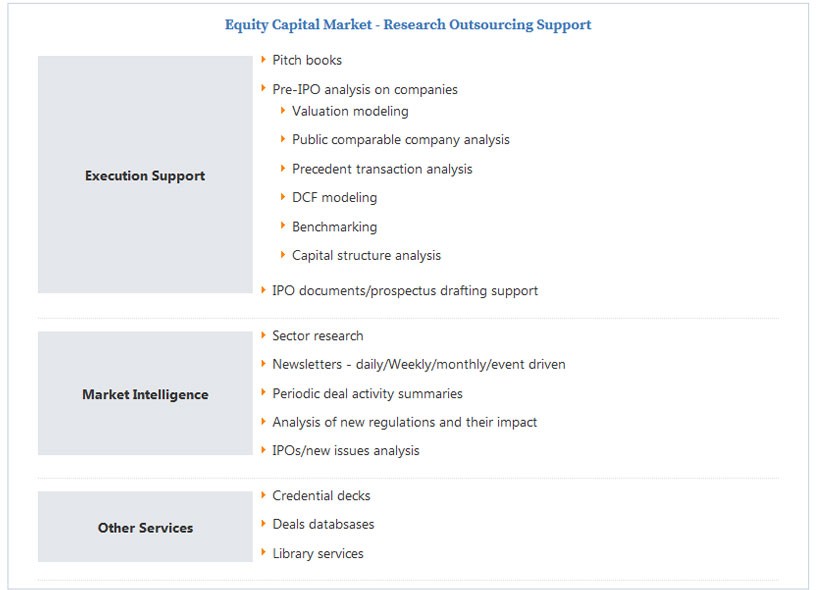Investment Banking vs Equity Research
Post on: 1 Июнь, 2015 No Comment

If you are considering a career in investment banking, you should definitely also take a look at bankings slightly less glamorous cousin, equity research.
So what is equity research all about?
Equity Research analysts closely analyze small groups of stocks in order to provide insightful investment ideas and recommendations to the firm’s salesforce, traders, and directly to institutional investors and increasingly to the general investing public. They communicate formally via research reports that place Buy, Sell, Hold ratings on the companies they cover.
Since Equity Research Analysts generally focus on a small group of stocks (5-15) within particular industries or geographic regions, they become experts in the specific companies and industry or “coverage universe” that they analyze. Analysts need to know everything about their coverage universe in order to make investment recommendations. As such, analysts constantly communicate with the management teams of their companies under coverage, maintain comprehensive financial models about these companies, and quickly digest and respond to new information that hit the tape, communicating new developments and ideas to the investment Bank’s sales force, traders, directly to institutional clients, to investment bankers, and to the general investment public over he phone, directly through to the trading floor through an intercom system and over the phone.
So are you a good fit for equity research?
If you enjoy writing, being on the phone with clients and getting to know management teams, while at he same time doing a lot of financial modeling and financial analysis, and getting home at a reasonable hour (9pm vs. 2am) Equity Research might be for you. Research associates (that would be your title coming in as an undergrad) go through similar training to that of sales & trading analysts. After 2-3 months of corporate finance, accounting, capital markets, research associates are assigned to a group, led by senior analyst with anywhere between o to 3 other junior associates already under him and begin to cover a group of stocks (usually 5-15) within a specific industry or region.
At larger investment banks, both IB analysts and ER associates start with the same base compensation. However, investment banking bonuses range from a 10-50% higher than equity research at the entry level. In fact, the difference at some firms is even more acute. There are rumors that equity research bonuses at Credit Suisse were 0-5k this year. Additionally, IB gets even more lucrative at more senior levels.
This is rooted in the economics of an investment bank vs. equity research. Unlike investment banking, equity research doesnt directly generate revenue. Equity research departments are a cost center that support sales & trading activities. In addition, despite a regulatory separation between equity research and investment banking (Chinese Wall), it also serves as a way to maintain a relationship with corporations the very clients that use the investment bank to help raise capital, acquire companies, etc. Nonetheless, researchs indirect role in the generation of revenue makes compensation generally lower.
Edge: Investment Banking
Lifestyle
Research associates are in the office at 7am and leave by 7-9pm. Working on weekends is limited to special situations like an initiation report. This is very favorable compared to investment banking, where analysts can work up to 100 hours a week.
Edge: Equity Research
Quality of work
If they are fortunate, Investment Banking analysts are exposed to non-public situations such as IPOs and M&A from the beginning to the end of the process. This provides real insight as to how a transaction is done from start to finish as well as how deals are actually negotiated. In reality, however, for the first several years, the analyst role is somewhat limited. Analysts spend a large portion of their time doing monotonous formatting and presentation work. The most interesting and rewarding work is financial modeling.
Equity research associates find themselves almost immediately interacting with portfolio managers and hedge fund managers, the firms internal sales force and traders, and communicating the senior analysts investment thesis after a company reports earnings. In addition, they develop modeling skills by constantly updating and analyzing their companies operating forecasts. Another benefit is that he grunt work in research is more limited than in banking to the creation of research notes and the updating of the senior analysts marketing material from time to time. However, unlike investment banking analysts, research associates are usually not exposed to the M&A, LBO, or IPO process from start to finish, as they are only privy to public information. As a result, they do not spend nearly as much time building those types of financial models. The modeling focus is primarily on the operating model.
Edge: Equity Research
Exit Opportunities
Equity research associates usually aspire to switch over to the buy-side. That is, to work for the portfolio managers and hedge fund managers that sell side research disseminates their reports and ideas to. The buy-side offers the allure of even better lifestyle, and actually investing (putting your money where your mouth is). That said, the buy-side is extremely competitive, even for research associates. Many associates must enhance their profile by receiving the CFA charter and or going to business school before getting into the buy side.
Investment banking analysts typically pursue MBAs, start their own business, or try to go directly into private equity after their analyst stints. Generally equity research is looked at as favorably as investment banking for certain buy-side firms, whereas transaction-focused firms, like private equity and VC firms generally prefer investment bankers. MBA programs generally look at investment banking and equity research equivalently, if perhaps a slight edge for investment banking.
Edge: Investment Banking














